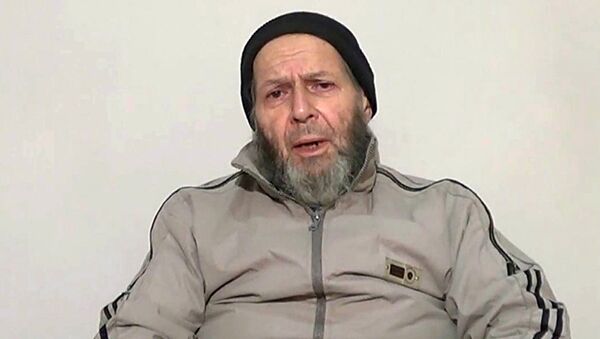The FBI’s previously undisclosed role, revealed to the Wall Street Journal by senior US officials, contradicts the US’ longstanding position against paying ransoms for hostages. While the White House criticizes the practice, the FBI has assisted the families of American hostages – all while trying to abide by US policy that forbids making concessions to terrorists.
Weinstein was killed accidentally along with Italian aid worker Giovanni Lo Porto in a drone strike on an al-Qaeda compound near the Pakistan-Afghanistan border. The CIA was unaware that the two hostages were present at the compound before launching the strike.
Years before Weinstein’s death, the FBI vetted a Pakistani middleman used by the family to transport the money, senior US officials told the Journal.
Directly authorizing or approving the ransom payment would have been a violation of US hostage policy. Instead, the FBI waited until the Weinsteins were set on paying the ransom, then agents provided assistance.
— The Solid Gold Idiot (@Bro_Pair) April 25, 2015
The Weinsteins are “an ordinary American family and they are not familiar with how one manages a kidnapping. As such, they took the advice of those in government who deal with such issues on a regular basis and were disappointed that their efforts were not ultimately successful,” a family spokesman told the Journal.
The Pakistani middleman was to take the $250,000 payment to Weinstein’s captors. After reviewing US intelligence, the FBI told the family the intermediary appeared to be legitimate and not part of a scam to steal the family’s money.
The FBI told the family the ransom was probably the best chance to free Weinstein, describing it as “the least bad of the unattractive options available,” the Journal reported. But, agents also warned the family that al-Qaeda may take the money and still not release Weinstein.
The intermediary told Journal that the $250,000 ransom was delivered to kidnappers in June 2012, but Weinstein was not released.
The White House has criticized other countries for making or facilitating ransom payments, warning that doing so could put other citizens at risk.
Last week, White House spokesman Josh Earnest, while discussing a pending review of the hostage policy, acknowledged that it is “painful.”
“The notion that by offering a concession or even a payment, that that could result in the release of your loved one, that seems like a rather attractive option,” Earnest said. “Unfortunately, this is a policy that’s in place because … paying ransom or offering a concession to a terrorist organization may result in the saving of one innocent life, but could put countless other innocent lives at greater risk.”
The families of several American citizens taken hostage in Syria said a senior White House official told them in three separate conference calls last year that it was illegal to pay ransoms, warning they could face prosecution if they went ahead with any such payments, the Journal reported.
Debra Tice, whose son Austin was taken captive in Syria in August 2012, and who took part in the calls, said the official also warned families that anyone who donated money knowingly to funding a ransom payment could likewise face prosecution.
Tice told the Journal that FBI agents in the room during the calls, which took place at FBI offices, “were shaking their heads in disbelief.”
Family members and US officials say FBI agents have repeatedly assured families they would not face charges.





